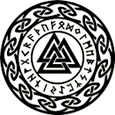
Author : Ellul Jacques
Title : Propaganda The formation of men's attitudes
Year : 1965
Link download : Ellul_Jacques_-_Propaganda.zip
Introduction. Jacques Ellul's view of propaganda and his approach to the study of propaganda are new. The principal difference between his thought edifice and most other literature on propaganda is that Ellul regards propaganda as a sociological phenomenon rather than as something made by certain people for certain purposes. Propaganda exists and thrives; it is the Siamese twin of our technological society. Only in the technological society can there be anything of the type and order of magnitude of modem propaganda, which is with us forever; and only with the all-pervading effects that How from propaganda can the technological society hold itself together and further expand. Most people are easy prey for propaganda, Ellul says, because of their firm but entirely erroneous conviction that it is composed only of lies and "tall stories" and that, conversely, what is true cannot be propaganda. But modem propaganda has long disdained the ridiculous lies of past and outmoded forms of propaganda. It operates instead with many different kinds of truthhalf truth, limited truth, truth out of context. Even Goebbels always insisted that Wehrmacht communiques be as accurate as possible. A second basic misconception that makes people vulnerable to propaganda is the notion that it serves only to change opinions. That is one of its aims, but a limited, subordinate one. Much more importantly, it aims to intensify existing trends, to sharpen and focus them, and, above all, to lead men to action (or, when it is directed at immovable opponents, to non-action through terror or discouragement, to prevent them from interfering). Therefore Ellul distinguishes various forms of propaganda and calls his book Propagandes-that plural is one of the keys to his concept. The most trenchant distinction made by Ellul is between agitation propaganda and integration propaganda. The former leads men from mere resentment to rebellion; the latter aims at making them adjust themselves to desired patterns. The two types rely on entirely different means. Both exist all over the world. Integration propaganda is needed especially for the technological society to flourish, and its technological means-mass media among them - in turn make such integration propaganda possible. A related point, central in Ellul's thesis, is that modem propaganda cannot work without "education"; he thus reverses the widespread notion that education is the best prophylactic against propaganda. On the contrary. he says, education, or what usually goes by that word in the modem world, is the absolute prerequisite for propaganda. In fact, education is largely identical with what Ellul calls "pre-propaganda" -the conditioning of minds with vast amounts of incoherent information, already dispensed for ulterior purposes and posing as "facts" and as "education." Ellul follows through by designating intellectuals as virtually the most vulnerable of all to modem propaganda, for three reasons: they absorb the largest amount of secondhand, unverifiable information; they feel a compelling need to have an opinion on every important question of our time, and thus easily succumb to opinions offered to them by propaganda on all such indigestible pieces of information; they consider themselves capable of "judging for themselves." They literally need propaganda. In fact, the need for propaganda on the part of the "propagandee" is one of the most powerful elements of Ellul's thesis. Cast out of the disintegrating microgroups of the past, such as family, church, or village, the individual is plunged into mass society and thrown back upon his own inadequate resources, his isolation, his loneliness, his ineffectuality. Propaganda then hands him in veritable abundance what he needs: a raison tr8tre, personal involvement and participation in important events, an outlet and excuse for some of his more doubtful impulses, righteousness - all factitious, to be sure, all more or less spurious; but he drinks it all in and asks for more. Without this intense collaboration by the propagandee the propagandist would be helpless. Thus propaganda, by first creating pseudo-needs through "pre-propaganda" and then providing pseudo-satisfactions for them, is pernicious. Can wholesome propaganda be made for a wholesome cause? Can Democracy, Christianity, Humanism be propagated by modem propaganda techniques? Ellul traces the similarities among all propaganda efforts-Communist, Nazi, Democratic. He thinks that no one can use this intrinsically undemocratic weapon-or, rather, abandon himself to it-unscathed or without undergoing deep transformations in the process. He shows the inevitable, unwilled propaganda effects of which the "good" propagandist is unaware, the "fallout" from any major propaganda activity and all its pernicious consequences. Most pernicious of all: the process, once fully launched, tends to become irreversible. Ellul critically reviews what most American authors have written on the subject of propaganda and mass media, having studied the literature from Lasswell to Riesman with great thoroughness. Accepting some of their findings, he rejects others, particularly. the efforts to gauge the effects of propaganda. Ellul believes that, on the whole, propaganda is much more effective, and effective in many more ways, than most American analysis shows. Particularly, he rejects as unrealistic and meaningless all experiments that have been conducted with small groups; propaganda is a unique phenomenon that results from the totality of forces pressing in upon an individual in his society, and therefore cannot be duplicated in a test tube. To make his many original points, Ellul never relies on statistics or quantification, which he heartily disdains, but on observation and logic. His treatise is a fully integrated structure of thought in which every piece flts in with all the others - be they a hundred pages apart. In this respect his work resembles Schopenhauer's Tle World as Will and Idea, of which the philosopher said that the reader, really to understand the book, must read it twice because no page in the book could be fully understood without knowledge of the whole. This procedure can hardly be suggested to the reader in our busy days. But he ought to be warned that to leaf through this book will not suffice. Paul Pickrel, in Harpers Magazine, said of Ellul's The Technological Society that Ellul" a great man" - had written with "monumental calm and maddening thoroughness... a magnificent book." Ellul's Propaganda is no less maddening, monumental, and thorough. What, in Ellul's view, can mankind do ? At the end of this book, Ellul reaches neither a pessimistic nor an optimistic conclusion with regard to the future. He merely states that, in his view, propaganda is today a greater danger to mankind than any of the other more grandly advertised threats hanging over the human race. His super-analysis ends with a warning, not a prophecy. KONRAD KELLEN. ...

Davis James Kirkpatrick - Spying on America
Author : Davis James Kirkpatrick Title : Spying on America The FBI's domestic counter-intelligence...














